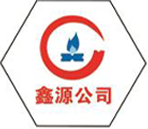
Nov . 14, 2024 21:19
Back to list
gas booster
The Rise of Gas Boosters Enhancing Energy Efficiency in Modern Applications
In today's rapidly evolving technological landscape, energy efficiency has become a primary focus across various industries. Among the myriad innovations aimed at optimizing energy consumption, gas boosters have emerged as a vital solution, offering significant advantages in performance and efficiency. This article delves into the role of gas boosters, their applications, benefits, and the future they promise in energy management.
What is a Gas Booster?
A gas booster is a mechanical device designed to increase the pressure of gases within a system. Typically employed in various industries, including oil and gas, petrochemical, and manufacturing, these devices can enhance the flow of natural gas, propane, or other gases needed for processes, heating, or combustion. By boosting gas pressure, these devices ensure that systems operate efficiently, delivering the required fuel to burners, heaters, and other equipment.
Applications of Gas Boosters
Gas boosters find applications in several fields. In the oil and gas industry, they are crucial in transporting gas from underground reserves to processing plants. The increased pressure helps overcome friction and elevation losses in pipelines, ensuring a steady flow of gas. Similarly, in manufacturing, gas boosters are used to facilitate the delivery of natural gas to various equipment, ensuring consistent performance.
Moreover, gas boosters play an essential role in commercial and residential heating systems. They help maintain optimal gas pressure in boiler systems, ensuring efficient heat production while minimizing energy waste. In addition, these devices are also utilized in welding and cutting processes, where precise gas flows are critical for safety and effectiveness.
Benefits of Gas Boosters
gas booster

The adoption of gas boosters brings numerous benefits. First and foremost, they enhance system efficiency. By ensuring optimal gas pressure, these devices help systems operate at peak performance, reducing the likelihood of issues related to insufficient gas supply, such as incomplete combustion, which can lead to wasted energy and increased emissions.
Additionally, gas boosters contribute to cost savings. By optimizing gas delivery and improving combustion efficiency, businesses can significantly reduce their energy expenses. The enhanced efficiency not only lowers operational costs but also minimizes the environmental impact, aligning with global initiatives toward sustainability and reduced carbon footprints.
Furthermore, modern gas boosters are designed with advanced technology that allows for precise monitoring and control. Many models come equipped with digital sensors and controllers that provide real-time data and diagnostics, enabling operators to make informed decisions and promptly address any potential issues. This proactive approach leads to improved reliability and reduced downtime.
The Future of Gas Boosters
As the world focuses increasingly on energy conservation and sustainability, the future of gas boosters appears promising. Innovations in materials and design will likely lead to even more efficient models that enhance performance while reducing environmental impact. The integration of smart technology will enable better data collection and analysis, further optimizing gas usage and promoting energy efficiency.
Moreover, with the rise of renewable energy sources, there may be new applications for gas boosters in hybrid systems, where they can work alongside solar or wind energy to ensure a stable and reliable gas supply. As industries evolve and adapt to changing energy landscapes, the role of gas boosters will undoubtedly expand, contributing to smarter and more sustainable energy management solutions.
Conclusion
In conclusion, gas boosters represent a vital piece of the puzzle in the ongoing quest for increased energy efficiency. Their ability to enhance gas pressure and optimize delivery systems has made them indispensable across multiple industries. As technology advances and the demand for sustainable practices grows, gas boosters will continue to play an essential role in shaping the future of energy management, leading industries toward a more efficient and environmentally friendly future. Embracing these innovations is crucial for businesses aiming to thrive in an increasingly competitive and eco-conscious world.
Next:
Latest news
-
Safety Valve Spring-Loaded Design Overpressure ProtectionNewsJul.25,2025
-
Precision Voltage Regulator AC5 Accuracy Grade PerformanceNewsJul.25,2025
-
Natural Gas Pressure Regulating Skid Industrial Pipeline ApplicationsNewsJul.25,2025
-
Natural Gas Filter Stainless Steel Mesh Element DesignNewsJul.25,2025
-
Gas Pressure Regulator Valve Direct-Acting Spring-Loaded DesignNewsJul.25,2025
-
Decompression Equipment Multi-Stage Heat Exchange System DesignNewsJul.25,2025

